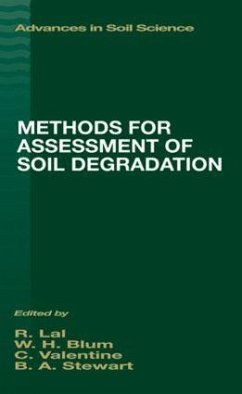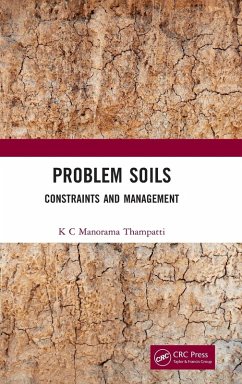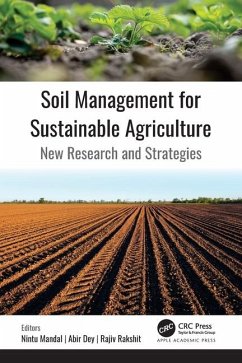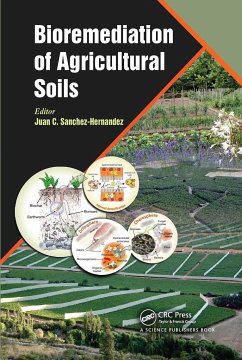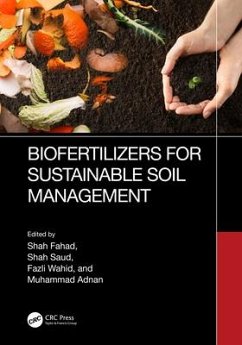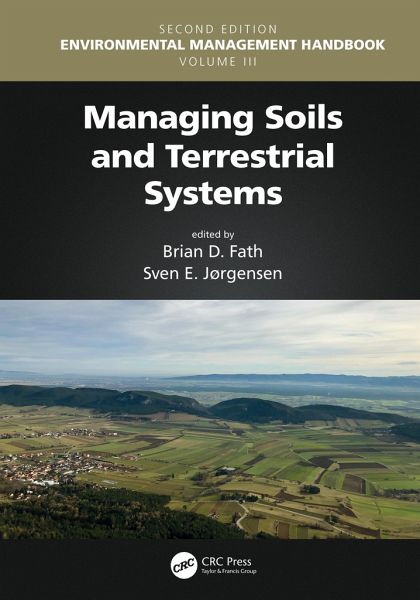
Managing Soils and Terrestrial Systems
Versandkostenfrei!
Versandfertig in 6-10 Tagen
63,99 €
inkl. MwSt.
Weitere Ausgaben:

PAYBACK Punkte
32 °P sammeln!
Bringing together a wealth of knowledge, Environmental Management Handbook, Second Edition, gives a comprehensive overview of environmental problems, their sources, their assessment, and their solutions. Through in-depth entries and a topical table of contents, readers will quickly find answers to questions about environmental problems and their corresponding management issues. This six-volume set is a reimagining of the award-winning Encyclopedia of Environmental Management, published in 2013, and features insights from more than 400 contributors, all experts in their field.The experience, ev...
Bringing together a wealth of knowledge, Environmental Management Handbook, Second Edition, gives a comprehensive overview of environmental problems, their sources, their assessment, and their solutions. Through in-depth entries and a topical table of contents, readers will quickly find answers to questions about environmental problems and their corresponding management issues. This six-volume set is a reimagining of the award-winning Encyclopedia of Environmental Management, published in 2013, and features insights from more than 400 contributors, all experts in their field.
The experience, evidence, methods, and models used in studying environmental management are presented here in six stand-alone volumes, arranged along the major environmental systems.
Features
The first handbook that demonstrates the key processes and provisions for enhancing environmental management
Addresses new and cutting-edge topics on ecosystemservices, resilience, sustainability, food-energy-water nexus, socio-ecological systems, and more
Provides an excellent basic knowledge on environmental systems, explains how these systems function, and offers strategies on how to best manage them
Includes the most important problems and solutions facing environmental management today
In this third volume, Managing Soils and Terrestrial Systems, the general concepts and processes of the geosphere with its related soil and terrestrial systems are introduced. It explains how these systems function and provides strategies on how to best manage them. It serves as an excellent resource for finding basic knowledge on the geosphere systems and includes important problems and solutions that environmental managers face today. This book practically demonstrates the key processes, methods, and models used in studying environmental management.
The experience, evidence, methods, and models used in studying environmental management are presented here in six stand-alone volumes, arranged along the major environmental systems.
Features
The first handbook that demonstrates the key processes and provisions for enhancing environmental management
Addresses new and cutting-edge topics on ecosystemservices, resilience, sustainability, food-energy-water nexus, socio-ecological systems, and more
Provides an excellent basic knowledge on environmental systems, explains how these systems function, and offers strategies on how to best manage them
Includes the most important problems and solutions facing environmental management today
In this third volume, Managing Soils and Terrestrial Systems, the general concepts and processes of the geosphere with its related soil and terrestrial systems are introduced. It explains how these systems function and provides strategies on how to best manage them. It serves as an excellent resource for finding basic knowledge on the geosphere systems and includes important problems and solutions that environmental managers face today. This book practically demonstrates the key processes, methods, and models used in studying environmental management.




